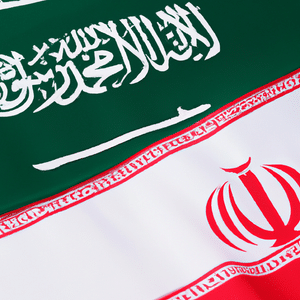Iran has extended an official invitation to Saudi Arabia’s King Salman to visit Tehran, following a reconciliation agreement between the two Middle Eastern powerhouses in March, facilitated by China. The invitation marks a significant step towards easing decades of hostility between the two nations, with both sides expressing hope for increased cooperation and stability in the region.
Iranian Foreign Ministry spokesperson Nasser Kanaani confirmed the invitation during a televised news conference and noted that King Salman’s visit to Tehran would be conditional upon a reciprocal invitation for Iranian President Ebrahim Raisi to visit Riyadh. This exchange of invitations demonstrates a mutual willingness to engage in dialogue and rebuild trust between the two countries.
The reconciliation agreement, brokered by Chinese President Xi Jinping, led to the restoration of diplomatic relations and the reopening of embassies between Iran and Saudi Arabia. This development has allowed the United States, traditionally influential in the Gulf region, to take a backseat in the negotiations.
Earlier this month, the foreign ministers of both countries met in Beijing for the first time in seven years. During the meeting, they agreed to reopen their embassies within two months and expand bilateral talks to address important regional issues. Additionally, technical teams from both countries are set to discuss the establishment of embassies for each other within the two-month timeframe.
The recent thaw in relations can be traced back to Saudi Arabia’s 2016 execution of Shia cleric Nimr al-Nimr, a critic of the Saudi monarchy, and the subsequent attacks on the Saudi embassy in Tehran, which resulted in severed diplomatic ties. Tensions between the two countries were further exacerbated by the Saudi-led war on the Iran-aligned Houthi movement in Yemen and the deaths of hundreds of Iranian Hajj pilgrims in a stampede in 2015.
As part of the China-brokered agreement, both Iran and Saudi Arabia “emphasized the respect for the sovereignty and non-interference in the internal affairs of each other” and agreed to implement a security cooperation agreement signed in 2001. This development is widely regarded as a diplomatic victory for China in the Gulf region, where the US has traditionally been the dominant power.
The reconciliation between Iran and Saudi Arabia may have wide-ranging implications for regional stability and geopolitics, potentially leading to cooperation in resolving ongoing conflicts such as the war in Yemen. Additionally, the improved relations between the two nations could contribute to a more balanced distribution of power in the Middle East, reducing the risk of further escalation and conflict.



















